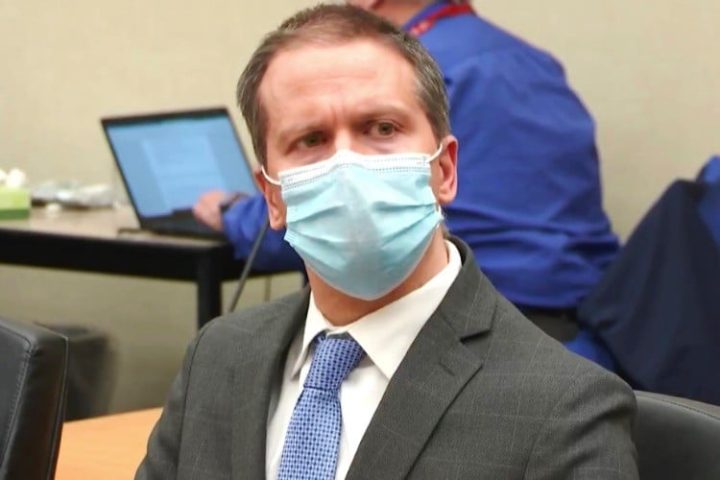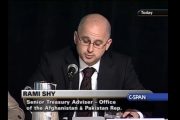
Even if a jury had declared Derek Chauvin not guilty in the death of drug addict and career criminal George Floyd, the most hated former cop in America would not have been free.
Federal prosecutors had planned to cuff him at the courtroom doors and indict him on federal police-brutality charges, the Minneapolis Star-Tribune reported today.
And now, even with Chauvin headed for a long prison term unless the conviction is overturned on appeal, the feds still plan to charge him with civil-rights violations.
Facts and evidence regardless, it appears that Derek Chauvin is doomed. So are his former fellow officers.
Secret Probe
“Leading up to Derek Chauvin’s murder trial, Justice Department officials had spent months gathering evidence to indict the ex-Minneapolis police officer on federal police brutality charges, but they feared the publicity frenzy could disrupt the state’s case,” the newspaper reported.
If the jury found that Chauvin did not commit a crime, federal cops would be waiting. Chauvin wouldn’t make it to his car. He’d go from one jail cell to another.
That, of course, was unnecessary. The jury convicted Chauvin on two counts of murder and one count of manslaughter. Jurors reached their verdict after Representative Maxine Waters (D-Calif.) and others threatened mob violence if he were not, in her words, declared “guilty, guilty, guilty.”
That could result in a successful appeal that would overturn the verdict. That aside, the conviction hasn’t satisfied the obsessed Ahabs inside the Justice Department, ever in search of the Great White Defendant.
Now, with Chauvin’s state trial out of the way, federal prosecutors are moving forward with their case. They plan to ask a grand jury to indict Chauvin and the other three ex-officers involved in George Floyd’s killing — J. Alexander Kueng, Thomas Lane and Tou Thao — on charges of civil rights violations, a source said.
If the grand jury voted to indict, the former officers would face the new civil rights charges on top of the state’s cases, meaning all four could be headed toward yet another criminal trial in federal court….
Under the contingency arrest plan, the Minnesota U.S. Attorney’s Office would have charged Chauvin by criminal complaint — a quicker alternative for a federal charge that doesn’t require a grand jury — so they could arrest him immediately, and then asked a grand jury for an indictment, according to sources, who were not authorized to speak publicly.
Two Cases
The feds want to prosecute Chauvin not just for restraining Floyd, who overdosed on fentanyl and died while resisting officers. They also want to nail him for the arrest of a 14-year-old nearly four years ago.
“On Sept. 4, 2017, Chauvin and another officer responded to a domestic assault, in which a mother said her juvenile son and daughter assaulted her,” the newspaper reported:
The officers arrived to find the 14-year-old son lying on the floor in the back of the house, on his phone, and ordered him to get up because he was under arrest.
When the boy refused to comply, Chauvin grabbed him and wordlessly struck the teen in the head with his flashlight multiple times. The video shows Chauvin using a neck restraint, choking the boy unconscious, then placing him in a prone position with a knee in his back for about 17 minutes until paramedics arrived, according to court documents.
Calling the 6’2″, 240-pounder a “child,” the newspaper reported that Chauvin held him after he said he was “in pain and couldn’t breathe, and after the mother tried to intervene, prosecutors said.”
The newspaper reported that the “child” was “bleeding from his ear — from getting hit with the flashlight, he later told paramedics — and he asked to be flipped on his back. He then began crying and again asked to be flipped over, prompting Chauvin to ask if the boy would be ‘flopping around at all.’”
The boy said he would behave.
Prosecutors admit that “Chauvin’s report from the incident suggested that the boy ‘then displayed active resistance to efforts to take him into custody’ by ‘flailing his arms around.’”
The feds are also probing whether Minneapolis cops “engage in a pattern and practice of unlawful behavior. Justice officials announced this investigation the day after Chauvin’s guilty verdict, another calculated move designed to avoid interfering with the state’s trial.”



